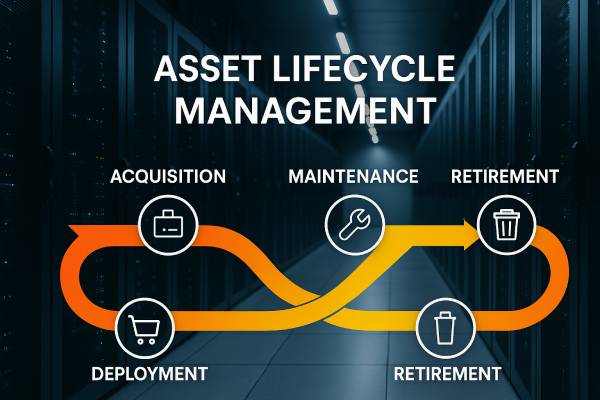Data center facility management compliance is not just about checking boxes – it’s a strategic priority that affects the core operations of mission-critical facilities. Field Service Management Software (FSMS) must go beyond simple checklist functionality to effectively manage compliance and optimize field service operations. Here’s why FSMS is essential.
Understanding the Role of Compliance in Field Service Management
Compliance in field service management involves adhering to industry standards and regulatory requirements, which ensures safety, security, and operational efficiency. For mission-critical facilities, a lapse in compliance can lead to severe consequences, including financial penalties and reputational damage. Therefore, a robust compliance framework integrated with FSMS is vital for optimizing field service operations.
The relevance of compliance extends beyond risk mitigation. It helps maintain operational integrity and protect organizational assets. With mission-critical facilities spanning diverse sectors like healthcare, energy, and transportation, tailored compliance management is crucial. Efficient work order management and inventory management systems further enhance this.
Moving Beyond Checklists: Why Comprehensive Compliance Matters
Relying solely on checklists might seem sufficient for compliance oversight, but this approach is often superficial. While checklists serve as helpful reminders, they don’t encompass the complexity required for effective compliance management. Here’s where MCIM delivers:
- Integrated workflows: MCIM integrates compliance protocols directly into workflows. This ensures that operational tasks align with regulatory requirements at the right time, facilitating adherence without additional administrative burden. The right people assign the right jobs to the right technicians at the right time.
- Real-time insights: The platform offers real-time monitoring, enabling facilities to react swiftly to compliance breaches and optimize processes proactively, utilizing technicians’ schedules and real-time updates.
- Predictive maintenance capabilities: By foreseeing equipment failures or maintenance needs, organizations can preempt issues that could complicate compliance adherence.
Advantages of Compliance-Centric Field Service Management Software
Organizations must adopt a compliance-centric approach to leverage FSMS effectively. Here’s how such software can make a difference:
- Risk mitigation: Proactively manages potential risks by ensuring consistent compliance practices across the board.
- Cost efficiency: Minimizes financial penalties from non-compliance and reduces operational costs through optimized resource allocation, including inventory management systems and managing jobs efficiently.
- Improved safety and productivity: By automating compliance checks, facilities can focus on enhancing productivity while maintaining safety standards.
- Improved reporting and analytics: Provides detailed dashboards and analytics tools, delivering valuable insights into compliance status and operational efficiency, essential for managing intricate tasks and enhancing workforce performance.
MCIM’s Role in Optimizing Mission-Critical Operations
MCIM stands out by delivering an all-encompassing platform designed not only for compliance but for operational excellence. Its offerings include:
- Enterprise Asset Management (EAM): Streamlines asset tracking and management processes to uphold compliance and improve asset utilization.
- Incident and near-miss reporting: Enhances safety protocols by documenting and analyzing incidents in real-time, ensuring continual improvement and adherence.
- Critical and preventative maintenance: Supports facilities in maintaining optimal operational condition, safeguarding compliance and reducing downtime for new jobs.
- Comprehensive dashboards: Facilitates informed decision-making through customizable operational dashboards reflecting compliance and performance metrics.
FSMS for Today’s Data Center Operations
Field Service Management Software designed with compliance at its core is not a luxury but a necessity. As regulatory landscapes continue to evolve, organizations need tools that can adapt, like FSMS, ensuring compliance while driving operational efficiencies.
MCIM exemplifies how integrated compliance within field service solutions fosters not just adherence but proactive management, transforming how facilities operate safely and effectively. Investing in these solutions today is key for long-term success. This is especially true with strong field service operations and work order management. These tools help improve technician availability and job scheduling.



